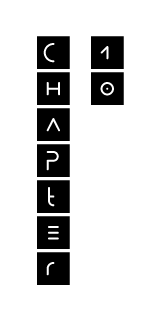
=
Metaphor: in Greek, the word means "to carry across." It translates perfectly to "transfer," which is the same exact meaning in Latin. "Translate" and "transfer," in fact, come from the same Latin roots: fero, ferre, tuli, latus: to bear, to carry; and trans: across. So, by extension then--or equation--metaphor is a kind of translation: metaphor = translation.
=
Each carries or bears something across. In the case of translation, it is the text's meaning that comes across so that the "same" message occurs on both sides of the equation: metaphor = to carry across. There is sameness, and there is difference. If a word has more than one meaning, then the context will help to determine which meaning to carry across. In the case of metaphor, there is a bit of a difference: to be sure, metaphor carries across a quality or qualities of the vehicle (that which is compared--the metaphor) to the tenor (that which is being compared to the vehicle-the "real thing"), but oftentimes context is not enough to isolate a particular quality. And if a quality has been isolated, it is quite possible that a different, perhaps contradictory quality could apply. So, with metaphor, readers must choose which qualities to carry across and thereby construct their own meaning.
=
All of this fascinates one like Zero who, sitting in his blue chair, is prone to think on things. But Zero thinks most about how metaphor is itself a metaphor of a mathematical event, a "small spatial story" as cognitive linguists would call it. For if one must "carry something across," this implies that there is a space across which something is being carried. And, for Zero, the crossing of space is the ultimate mathematical act, in his mind. He is often taken by the mystery of geometry and of what he calls "dimensional generation": start with a point, a mathematical object of zero dimensions; split that point in half, such that a space is created between what is now two points; now cross over that space to connect the two points. A dimension is thereby generated: we now have a line of one dimension. Do it again: split the line in half, such that two parallel lines now exist; connect the lines by crossing the space inbetween. We now have a two dimensional square. Do it again: split the squares, connect the lines, and make a three dimensional cube. Do it again: split the square, connect the lines, and make a four dimensional hypercube.
=
In every case, crossing over, the act of metaphor, creates something new, something that wasn't there before. As G. Spencer-Brown writes in The Laws of Form, ". . . a universe comes into being when a space is severed or taken apart."
=
But what baffles Zero is the thought of never making it to the other side, the thought of staying in the middle, in between. That is, One begins crossing over, has a destination in mind--the vehicle is fully functioning and a trajectory selected--but One never actually arrives, One is stuck in the middle, or not stuck, takes a turn (for the worse?) and heads downstream, parallel to the banks, perpendicular to the original trajectory, floating, nomadic, homeless.
=
The metaphoric implications of this keeps Zero occupied for hours. But the essentially spatial nature of language occupies his thoughts for days, years. (In fact, the thought of a topic occupying Zero's thoughts for days equates a thought with space, with a place that can be occupied. The conclusions of cognitive linguistics are clear on this: metaphorical concepts--the fundamental metaphors that our languages are grounded upon--derive from our experience of being a brain in a body occupying a three-dimensional world.
=
return to rsmyth's homepage
rsmyth@anabiosispress.org